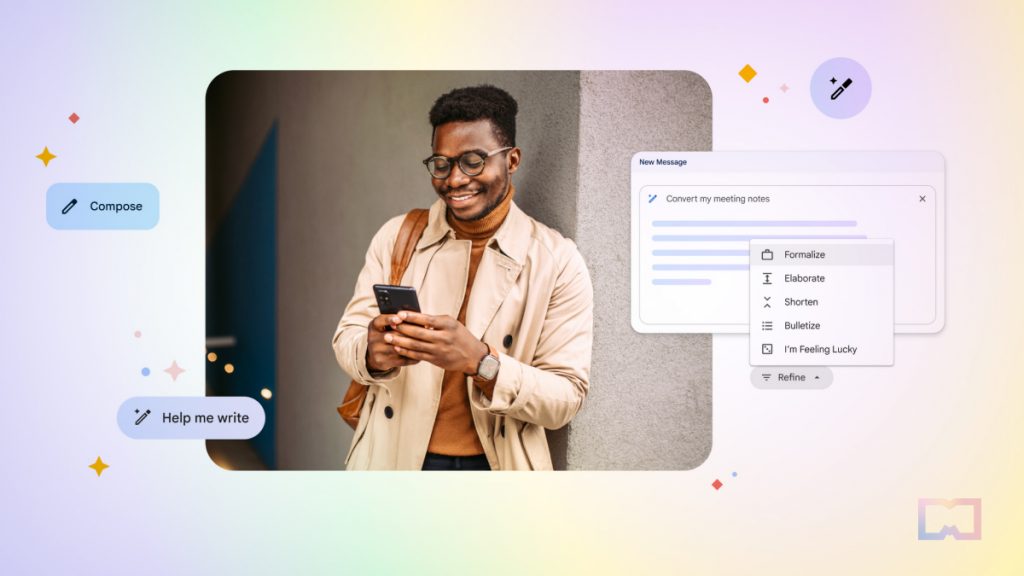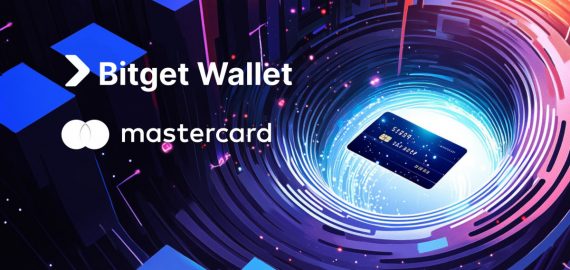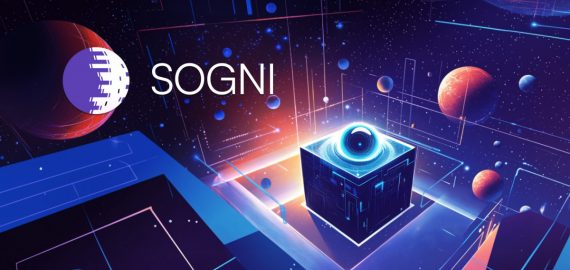Google Adds New Generative AI features to its Workspace Suite

In Brief
Google adds new AI-powered features to its Workspace suite.
The AI functions are now available on Docs, Gmail, Sheets, Meet, and Chat.

Google has announced the implementation of new generative AI features to its Workspace suite. Before this, the Workspace suite already included AI-powered Docs and Gmail. The application featured “Smart Compose” and “Smart Reply” options, which enabled users to generate summaries and meeting transcripts.
The new AI functions, which are available on Docs, Gmail, Sheets, Meet, and Chat, are designed to facilitate and fasten users’ work.
The features allow individuals to draft, reply, summarize, and prioritize emails in Gmail. When using Slides, individuals can bring their ideas to life with the help of auto-generated images, audio, and video. Docs can help users brainstorm, proofread, write, and rewrite texts. When using Meet, individuals can generate new backgrounds and capture notes. The AI-powered Sheets helps users go from raw data to insights and analysis via formula generation, auto-completion, and contextual categorization.
“As we’ve experimented with generative AI ourselves, one thing is clear: AI is no replacement for the ingenuity, creativity, and smarts of real people. Sometimes the AI gets things wrong, sometimes it delights you with something offbeat, and oftentimes it requires guidance,”
shares Google in the official statement.
These features are part of Google’s efforts to make its products more “intelligent” and use its expertise in artificial intelligence. More than that, the tech giant might be trying to compete with OpenAI’s ChatGPT as more tech users switch to the chatbot to complete daily and work tasks. In addition, the new AI set might help Google compete with Microsoft and other productivity suite providers.
Read related posts:
Disclaimer
In line with the Trust Project guidelines, please note that the information provided on this page is not intended to be and should not be interpreted as legal, tax, investment, financial, or any other form of advice. It is important to only invest what you can afford to lose and to seek independent financial advice if you have any doubts. For further information, we suggest referring to the terms and conditions as well as the help and support pages provided by the issuer or advertiser. MetaversePost is committed to accurate, unbiased reporting, but market conditions are subject to change without notice.
About The Author
Valeria is a reporter for Metaverse Post. She focuses on fundraises, AI, metaverse, digital fashion, NFTs, and everything web3-related. Valeria has a Master’s degree in Public Communications and is getting her second Major in International Business Management. She dedicates her free time to photography and fashion styling. At the age of 13, Valeria created her first fashion-focused blog, which developed her passion for journalism and style. She is based in northern Italy and often works remotely from different European cities. You can contact her at [email protected]
More articles

Valeria is a reporter for Metaverse Post. She focuses on fundraises, AI, metaverse, digital fashion, NFTs, and everything web3-related. Valeria has a Master’s degree in Public Communications and is getting her second Major in International Business Management. She dedicates her free time to photography and fashion styling. At the age of 13, Valeria created her first fashion-focused blog, which developed her passion for journalism and style. She is based in northern Italy and often works remotely from different European cities. You can contact her at [email protected]


















































